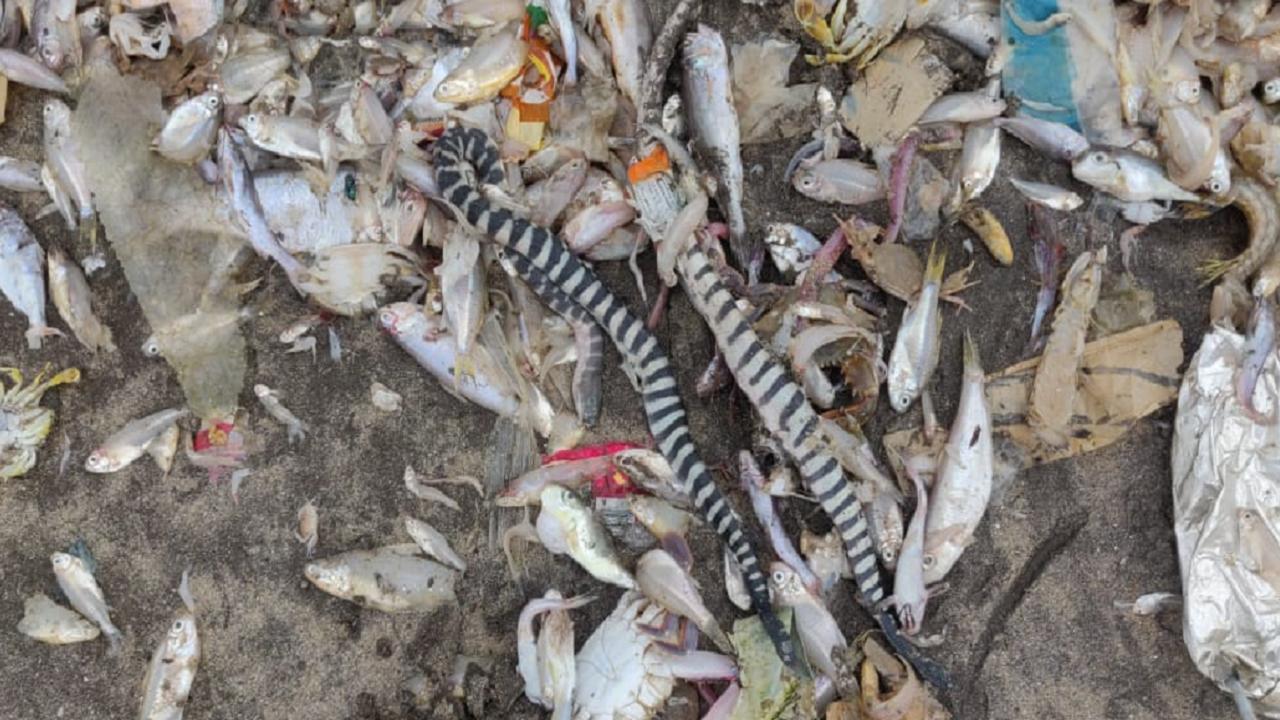Reportedly, the snakes were netted as by-catch and must have been thrown on beach by fishermen.

Abandoned sea snakes found on Alibaug beach. Pics/Ranjeet Jadhav
Timely intervention by a member an NGO has helped in saving the lives of over 20 hooked nose snakes and toothed sea snakes that were abandoned on Alibaug beach.
Reportedly, the snakes were netted as by-catch and must have been thrown on beach by fishermen. The volunteer attached to NGO OWLS rushed to the spot, rescued the snakes and released them back into the sea.
On Sunday morning two women who were cycling on Sasawane beach in Alibaug saw several dead and alive snakes on the beach and they informed the member of NGO OWLS.
Talking to mid-day Wildlife Lover Rahul Barve from NGO Organization For Wildlife Studies (OWLS ) said, " After I was informed, I rushed to the beach and saw that there were close to 50 juvenile hook nose snakes and teethed sea snakes on the beach. Many of them were dead and many were still alive. We safely rescued them and released them back into their natural habitat. They must have landed on the beach as a by-catch in fishing nets."
Notably, hook nose snakes are found in tropical shallow waters, river mouths, mangrove waters, etc. and are active during day and night. Like other sea snakes, they spend most of their lives in saline water and feeds on fishes and prawns. They are considered to be one of the most aggressive sea snakes and can bite on mishandling.
Kunal Salunkhe, President of NGO OWLS said, "Sea snakes are a very important part of marine ecology as fish is their primary prey base, they keep control over the fish population naturally. Many large birds such as the sea eagles feed on sea snakes, so effects on the sea snake population may create an imbalance in the ecosystem.
The sea snake as a by-catch is a global problem that can lead to the decline of the species' population as well as it can be hazardous to fishermen because a majority of the sea snakes are highly venomous. Fishermen do not kill or catch these snakes intentionally, but raising awareness among the fishing community may help to reduce these cases of mass destruction also to save their own lives. Currently not enough studies have been done in this regard, so more data is needed to create core conservation policies."
 Subscribe today by clicking the link and stay updated with the latest news!" Click here!
Subscribe today by clicking the link and stay updated with the latest news!" Click here!









